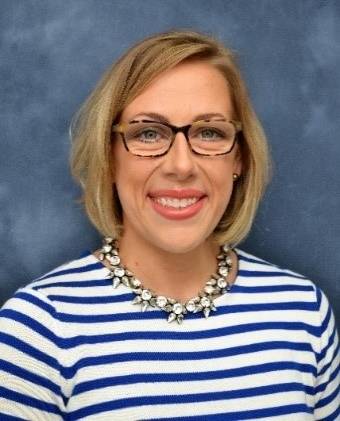Dr. Leigh Szucs,"Shaping the Future of Adolescent Health"
In the evolving landscape of adolescent health and school-based education, Leigh Szucs, PhD, CHES® works to enhance the well-being of youth through comprehensive health education. Her journey from an undergraduate student passionate about health and physical education to a senior health scientist at the Center for Disease Control and Prevention’s (CDC) Division of Adolescent and School Health (DASH) encapsulates a blend of personal inspiration, rigorous academic pursuit, and a deep-seated desire to make a lasting impact.
Advancing adolescent health at the CDC In her current role at CDC, Dr. Szucs is at the forefront of advancing the scientific understanding and practical application of health education in schools. "I participate in and lead several research and programmatic activities,” said Szucs, “including the design and evaluation of school-based programs addressing comprehensive health education, including sexual and reproductive health education." This hands-on involvement in both the research and application aspects of health education underscores the depth of her commitment to making a tangible difference in the lives of young people.
Szucs also provides technical assistance to school districts and schools across the country to help improve staff capacity for, and student access to comprehensive, culturally responsive, and inclusive health education programming.
A milestone in health education curriculum analysis Dr. Szucs recently led efforts to revise one of CDC’s flagship school health education tools – the Health Education Curriculum Analysis Tool or (HECAT). This evidence-informed tool is designed to help schools and districts evaluate and improve their health education curricula, focused on nine priority health topic areas (e.g., food and nutrition, mental and emotional health, sexual health, and violence prevention). A recent 2021 revision of the HECAT updated content and skill objectives for students across grade level spans and engaged external subject matter experts from the fields of adolescent health and school health education.
“The significance of this revision is so important,” notes Szucs. "This multiyear project represents improvements to a crucial resource for educators striving to provide comprehensive and effective health education, reflecting the latest in scientific research and pedagogical strategies.”
In addition, Szucs assists CDC with conducting other research programs to advance health and sexual health education curriculum and instruction. “For example, we are in the final stages of an intervention pilot study to improve teacher instructional competencies in delivering health education,” said Szucs. “Through all of our health education portfolio, we consistently use Youth Risk Behavior Survey (YRBS) and School Health Profiles data to examine trends in adolescent health behaviors, and school policies and practices related to health education and staff professional development.”
Overcoming obstacles in school health programs Dr. Szucs identifies pressing challenges with addressing adolescent health through schools, such as the need for dedicated time and structured programs for health education. "Despite the success and importance of school-based health programming,” said Szucs, “One challenge that remains is a commitment to dedicated and structured time at every grade level (K-12) for health education programs.” This observation highlights the ongoing struggle to balance educational priorities in a way that fully supports students’ health and well-being. “We know that health education, including sexual and reproductive health education, has to be systematic, structured and repeated over time, just like other academic disciplines in the school curricula,” said Szucs, “so that young people can develop knowledge and master skills needed to improve their health behaviors, experiences, and outcomes.”
Strategies for school health success Addressing the complexities of adolescent health, including sexual and reproductive health, in schools requires a nuanced and scientifically grounded approach, one that Dr. Szucs is well-versed in. She uses evidence-based strategies focused on building student health skills for accessing health services, products, and information, as well as interpersonal communication and decision-making in alignment with standards-based frameworks from the field of school health education. Szucs also applies best practices from the robust evidence describing the impacts of professional development for school health educators. "Studies illustrate that when teachers are well-trained and supported through ongoing professional development efforts, they're more likely to include key sexual health education topics – and the quality of delivery improves."
Advice for the next generation of health education specialists For those considering a career in this field, Szucs offers sage advice, emphasizing the importance of education, networking, and exploring any opportunities across multiple levels local, state, and federal. “If you are an aspiring adolescent health education specialist, read everything about adolescent health and school health education you can get your hands on! I would also advise you to seek out fellowship and training opportunities like those found at CDC.” Szucs became a CHES®-certified early in her career, knowing it was an important step for demonstrating professional competency in the field. “Many of my early-career mentors were CHES® and MCHES®-certified,” said Szucs, “and their encouragement towards certification was helpful and motivating.” In addition, Szucs shared that new professionals or graduates interested in pursuing a career in adolescent health or school health education at the federal level can visit the CDC's website as a starting point: CDC Fellowships and Training Opportunities.
A personal mission At the core of Dr. Szucs' motivation is a belief in the transformative power of education. "I do this work because I believe every young person deserves a school-based health education experience that is positive, affirming, factual, and comprehensive," said Szucs. Her story is not just one of professional achievement but also of a profound commitment to fostering environments where every student can thrive.
